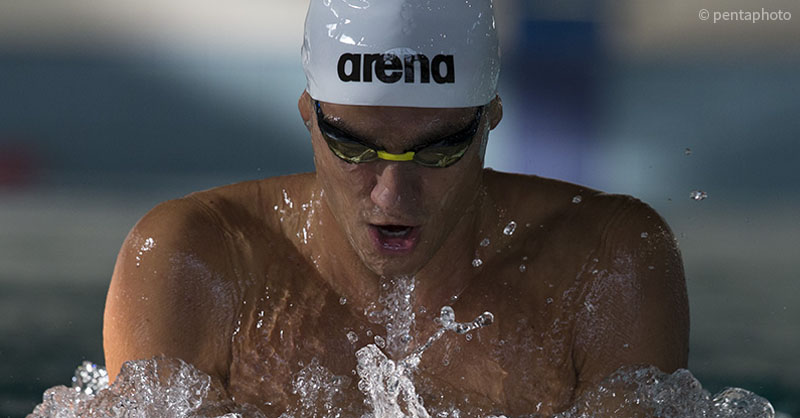Great swimmers of the past and present have suffered and still suffer from asthma, but this has not stopped them on their path to success.
Asthma (i.e. chronic inflammation of the airways) is considered to be the epidemic of the third millennium.
Approximately 6% of children aged 6-8 suffer from it, with the symptoms worsening in case of emotional stress, cold, medication, dust, food and physical exercise.1
So, with the help of mathematics, you might think: (asthma + exertion)= danger!
Well you would be wrong.
The place where you practice sport plays a crucial role: a warm and humid environment like a swimming pool greatly diminishes the pathology in question. Swimming actually helps reduce bronco-constriction, which is one of the main symptoms of asthma.
If you ask your doctor or your son’s/daughter’s paediatrician which is the best sport for somebody who suffers from asthma, then the best and most frequent answer will be: swimming.
HOW TO CONTROL ASTHMA:
– Take a medical check-up to assess whether you are fit for physical exercise, including a careful test for allergies and asthma.
– Before any strenuous swimming, warm up properly and warm down slowly but effectively.
– Do not enter the water right after meals and/or taking medicine.
– Avoid swimming in cold water (bearing in mind that the normal temperature of the water in swimming pools should be between 25°C-28°C).
Stop any physical exercise if you are suffering from a respiratory infection (flu or cold) and check with your doctor when you will be ready to resume training.
The only inconvenience you might encounter, assuming you are hypersensitive to mildew, might be in the changing rooms where there could be mildew.
But do not worry, because all sports facilities, particularly swimming pools, undergo regular, careful checks by the relevant local authorities.
Do not think for one moment that this ailment will keep you away from sports: a sedentary lifestyle would be more harmful on a bronchial level.
And remember that almost 1-in-10 of the athletes who took part in the Olympics suffers from asthma. 2
A SHORT ANECDOTE
Looking at the results of the swimming races at the 2008 Beijing Olympics, it has been pointed out that 19.3% of the swimmers with a therapeutic use exemption for an inhaler won 32.9% of all the water sports events. 3
Definitely a good result for asthma sufferers!
A study carried out by the University of Western Australia concludes by stating that swimming is the water sport with most asthma sufferers and more swimmers suffer from asthma than any other endurance athletes.
So asthma is no excuse for not trying out swimming and going back to maths: (asthma + swimming) = victory.
Take a deep breath and dive in ready for our next article.
